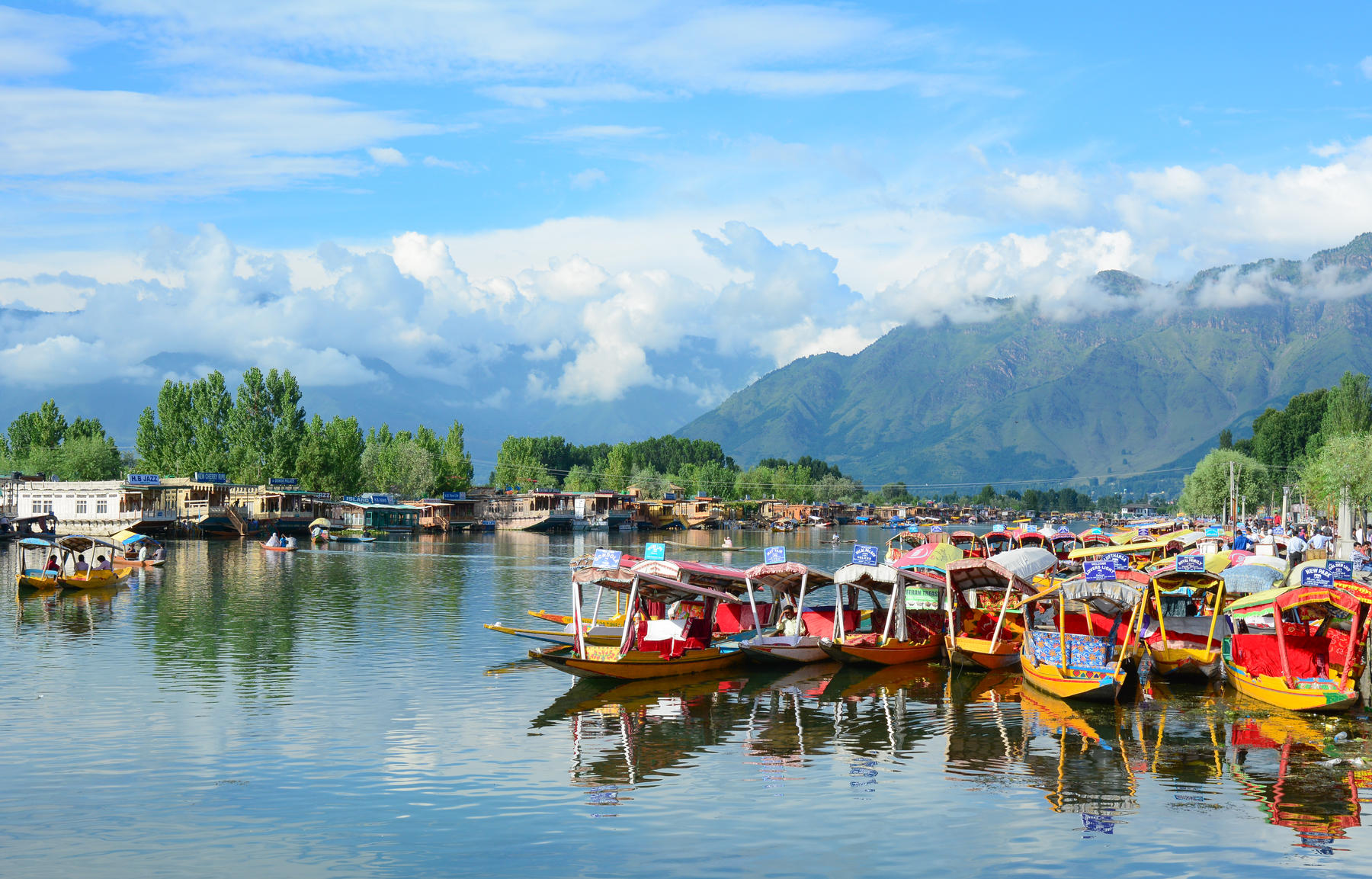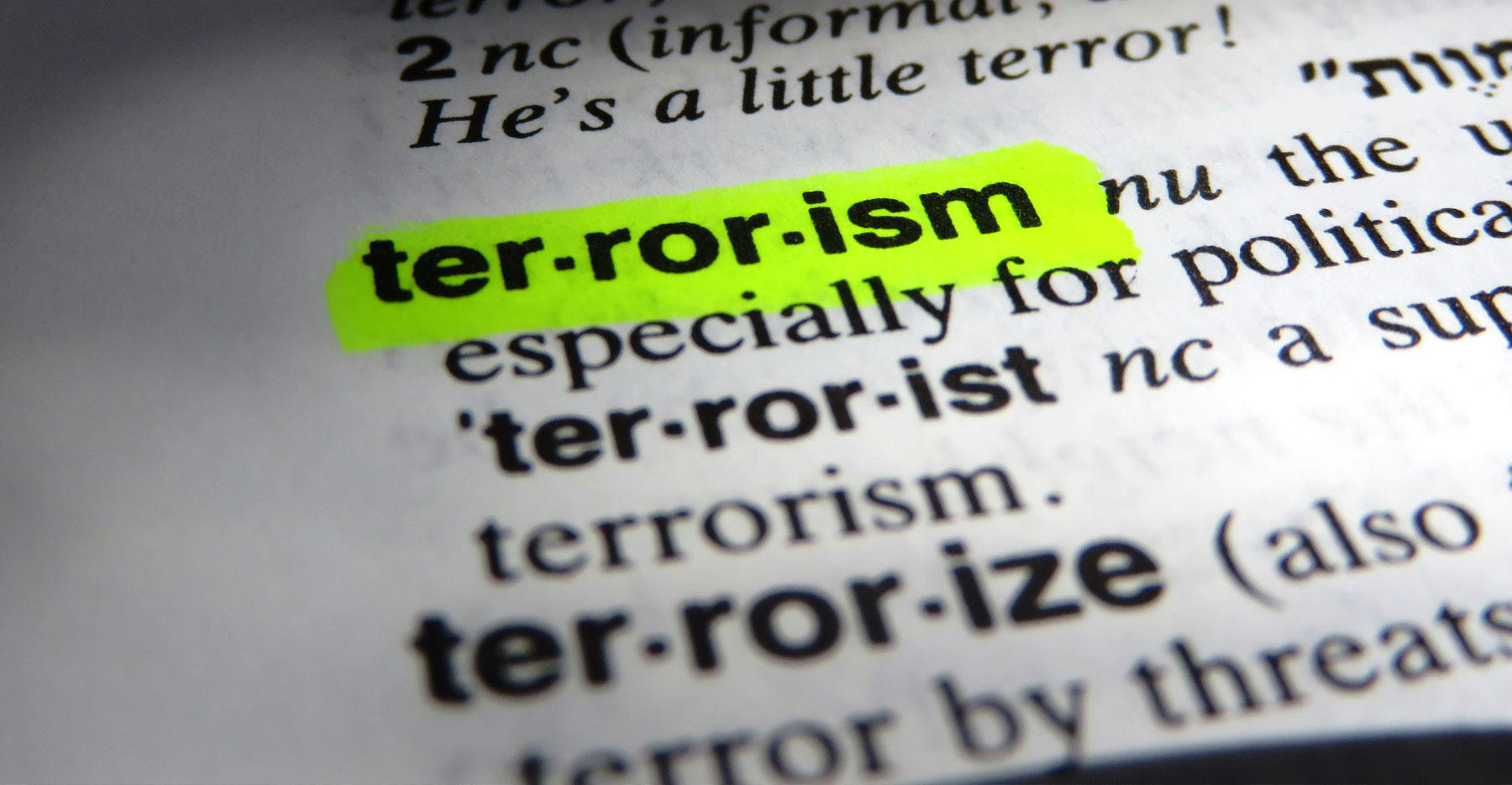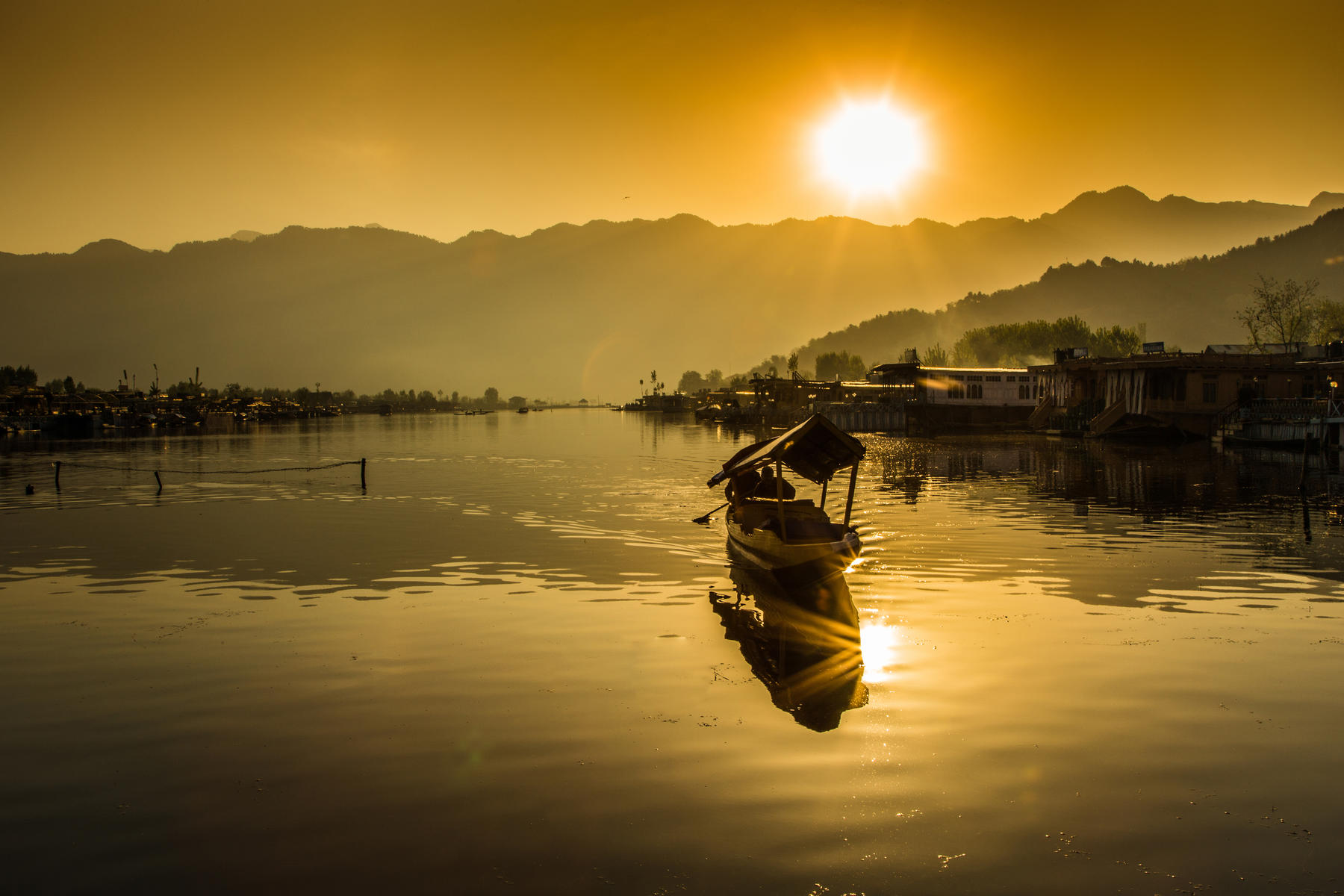2 Day EFSAS Conference on Terrorism and Radicalization in Jammu & Kashmir and the wider region at VU University in Amsterdam
1 & 2 November 2022 - VU University Amsterdam
In collaboration with VU University Amsterdam, the European Foundation for South Asian Studies (EFSAS) organized a Two-Day Conference on 'Terrorism and Radicalization in Jammu & Kashmir and the wider region' at the Vrije Universiteit Amsterdam on 1 & 2 November 2022. A group of international experts and diaspora from the region of Jammu & Kashmir presented their views and deliberated upon the topic and discussed the effects of terrorism and radicalization in Jammu & Kashmir and the wider region of South Asia.
On the first day, EFSAS Director Junaid Qureshi opened the event and welcomed the audience, which largely consisted of students and academics from various disciplines including International Relations, Politics, Economics, and representatives from Think Tanks and NGOs. Mr. Junaid Qureshi provided a brief historical overview on the partition of Jammu and Kashmir, the emergence of terrorist organizations in recent decades, and the interconnection of the conflict with broader geopolitical trends throughout South Asia.


Mr. Burzine Waghmar, Member of the Centre for the Study of Pakistan and Centre for Iranian Studies at SOAS, Visiting India Fellow at RUSI and EFSAS Research Fellow, provided an in-depth description of the history of the region of Jammu & Kashmir, starting from the 7th century AD. Both pre-Islamic and Islamic cosmographies of Kashmir, as sacred territory per se have been long eulogized, he argued. From first being a land of Buddhism and Tantrism, Jammu & Kashmir got Islamized under Sufi influences in the 14th century, with the Islamic faith consolidating in subsequent centuries under Afghan and Mughal rulers that integrated the territory into regional supply chains and trade connections, Mr. Waghmar explained. He went on to illustrate how the Kashmiri Pandits under Mughal rule reinforced the seeming uniqueness of Jammu & Kashmir despite the prevalence of sectarian clashes between Sunnis, Shias and Hindus, as well as endemic famine, heavy taxation and general penury. Religious diversity was further repressed under Sikh rule, Mr. Waghmar added. Curiously, Mr. Waghmar particularly highlighted how it was Jinnah who outright refused a plebiscite offered by Nehru. Pakistanis routinely deride India for reneging on this but seem ignorant of the fact that Jinnah never wanted one, Waghmar said.
As he further discussed, Kashmiri identity is fragile since Kashmir has never been institutionalized as a State, with the Dogras purchasing it from the British and later adding other entities, namely Ladakh and Gilgit Baltistan. When it comes to post-1947 dynamics, Waghmar points out that without its focus on religion, Pakistan has little political claim over Jammu & Kashmir, which after 1971 and the independence of Bangladesh, has diminished even more. On the contrary, the cost of pursuing the claim over Kashmir, especially through ever-increasing military expenditure, far exceeds any economic benefits for Pakistan. Thus, engagement with Islam as a guiding framework is only selectively invoked, with violence against Muslims, which is the case in Balochistan, unravels this strategy and shows how it is a tool for political control.


Ms. Myra MacDonald, author of books on contemporary South Asian security and Former Bureau Chief of Reuters in India, initially outlined that cultural narratives surrounding Jammu & Kashmir prior to the partition of British India in 1947 were frequently focused on J&K as a physical space rather than emphasizing the idiosyncratic cultural identity of the region. Modern J&K emerged as a result of the 1846 Treaty of Amritsar and has played a key role in the national imageries of both Pakistan and India. Pakistan, she discussed, has been founded on the notion of Pakistan being the sole homeland for Indian Muslims, with this religious narrative serving as the base for Pakistan’s claim to J&K. India’s claim, in contrast, is based on the signed instrument of accession and secularism, providing the Indian claim with a less ideological narrative when compared to Pakistan, but with a sound legal foundation. This ideological fixation, she suggested, has resulted in the Pakistani Army dominating domestic politics and preventing democratization in the long run, forming a form of political-ideological prison.
The early stages of the insurgency in Indian-administered J&K, Ms. MacDonald stressed, were marked by human rights violations by both Pakistan-backed outfits and Indian security forces, with the insurgency enjoying little backing in the population. The Kashmir Valley is key for the Pakistani strategy due to its demographic size and its Muslim majority. Gilgit Baltistan, in turn, is key for the continental access to China, including through the China Pakistan Economic Corridor (CPEC) and the Karakoram Highway. For India, Ladakh is particularly crucial as it delineates border with China, with the 1962 Sino-Indian war leaving deep anxieties in India. The Line of Control (LOC) and Line of Actual Control (LAC) mark contested borders that consistently imply the potential for further escalation, with disagreements on the historical legitimacy of the borders limiting the potential for reconciliation.
Ms. MacDonald narrated that the highest possibilities for conflict resolution were witnessed under Manmohan Singh and Pervez Musharraf in the 2000s. Singh and his predecessor, Prime Minister Vajpayee, had started promising talks with Pakistani envoys that included an agreement on the legal transfer of territory, the LOC becoming an international border, and the permission of cross-border flows of people and goods. Maximum autonomy would be given to respectively held areas and frequent discussions would be held between Pakistani, Indian, and Kashmiri representatives. The negotiations ultimately failed due to Musharraf’s removal, the lack of public support in Pakistan for the agreement, and the 2008 Mumbai attacks carried out by Pakistani sponsored Terrorist organizations. The attacks, she stressed, were so impactful because they targeted ordinary Indians rather than security infrastructure.
Since then, Ms. MacDonald concluded, J&K has become even more fragmented. The revocation of Article 370 in India in 2019 has effectively rendered the division of the state a fait accompli, meaning that any conflict resolution can no longer focus on J&K in its original borders. Resolutions could focus on establishing the LOC as an international border, formalizing the end of J&K.


The last speaker for the day, Mr. Daud Khattak, Managing Editor Mashaal Radio - Radio Free Europe/Radio Liberty, discussed the ongoing terrorism and proliferation of extremist outfits in South Asia. He discussed how the contemporary issues of radicalization and terrorism in J&K can be traced back to the use of proxies and the support for Kashmiri insurgents in the name of Jihad by Pakistan. While Pakistani meddling in J&K continues till present day, the deep state has shifted its proxies from the tribal areas to Punjab, Khattak argued. Thus, the militancy which was started in the 1990s is composed of non-Kashmiri jihadists, such as Harkat-ul-Mujahideen, Lashkar-e-Taiba and Jaish-e-Mohammad, including Afghans and people who had previously fought in Afghanistan, such as members of the Haqqani tribe. Mr. Khattak further explained to the audience how the recruitment processes for terrorist groups fighting in J&K was facilitated by Jamaat-e-Islami, which operated in close coordination and focused on the indoctrination process in Punjab.
Following 9/11, terrorist groups active in Kashmir increased their presence in the Pashtun tribal areas, ultimately also leading to the emergence of the Tehrik-e-Taliban Pakistan (TTP). While Internal instability and international pressure seem to have limited the scope of Pakistani support for terror groups at the moment, its continuous assistance is visible through protectionism Pakistan has extended to terrorist commanders. Despite being arrested and charged, Hafiz Saeed is still moving within Pakistan. Similarly, Masood Azhar is also hiding in the country despite contrary information in the media, Mr. Khattak added. He argued that other regional dynamics such as the building of the CPEC, the ongoing Baloch insurgency, the presence of organized crime groups and relations with Iran and the Central Asian States might bring further changes in Pakistan. Yet, when it comes to the Pakistani policy vis-à-vis terrorism and Kashmir, Mr. Khattak concluded by warning that ‘the dragon is fragile and sleepy but away from dead, and could wake up anytime’.


During the second day of the conference, the panel consisted of exclusively Kashmiris from both sides of the LoC.
Mr. Jamil Maqsood, Journalist, Human Rights Activist at EU Parliament, and representative of International Human Rights Council - Hong Kong, spoke on the historical origins of the former princely state of Jammu and Kashmir (J&K). Beginning in 1846 when J&K’s special status with the British Raj was first established, Mr. Maqsood traced the subsequent four rulers who significantly shaped J&K as well as a number of crucial turning points like Operation Gulmarg in 1947 and concluded with insight into the international community’s perspective on the violations made by Pakistan. International inaction and insufficient attention were prominent themes within Mr Maqsood’s speech.
Mr. Nasir Aziz Khan, Director of South Asia Centre Human Rights and Peace Advocacy, Journalist and Political Analyst, focused on the more recent religious trajectory and internal dynamics of Jammu and Kashmir. Mr. Khan noted the exploitation of the Islamic ‘Umma’ in propaganda that ultimately encouraged religious extremism and fueled recruitment efforts made by the Pakistani State for their ‘assets’, i.e. terrorist groups trained within its borders and deployed elsewhere acting in conjunction with the military. He pointed to the invasion of Yemen by Saudi Arabia as an example of how the transnational construction of the ‘Umma’ could be used as a tool for justifying invasion. In direct contrast to this narrative of Islamic duty, Mr. Khan cited the mostly peaceful history of Kashmiri people which existed in spite of religious differences, until the introduction of local terrorism by Pakistan. In keeping with this maltreatment by Pakistan, Mr. Khan continued on saying that even today there exists an oppressive legal system in Pakistan Administered Jammu & Kashmir that denies true provincial status despite Jammu and Kashmir being exploited for economic and material gains by Pakistan. For Mr. Khan, this is clearly demonstrable in the lack of funding for infrastructure in this region. Only since the 2005 earthquake there has been improvement, but Jammu and Kashmir is still noticeably lacking in key infrastructural areas. Hence, Mr. Khan called for a referendum-like decision to be afforded to the Kashmiri people living under Pakistani occupation so that they might determine their own future and underlined the need to have this process in a fair and unbiased manner.


Inspired by the university setting and the potential of students to shape the future, Mr. Shaukat Ali Kashmiri, Exiled Chairman of the United Kashmir Peoples National Party and Secretary General of Jammu Kashmir International People`s Alliance, spoke highly of the benefits of democracy. Mr. Kashmiri was adamant about the necessity of democracy to recognize people as inherently valuable despite any conflicting ideological or identity-related markers. Seeing the use of terrorism in his own home state of Jammu & Kashmir as both a foreign and domestic policy by the State of Pakistan, Mr. Kashmiri recounted the Pakistani military recruiting students to disseminate State propaganda and recruit other students to join so-called ‘Jihad’ in Jammu & Kashmir. Thus, Mr. Kashmiri claimed, that it is the duty of the students to investigate and protest against injustice. The distortion of history by populist politicians and war-mongers is insensitive to those it harms and as such requires direct action. He called for Pakistan to stop facilitating terrorism both within and beyond its borders, for it to recognize each citizen as human being regardless of their ideological differences and for the international community to hold States like Pakistan accountable for their actions.


The final speaker, Mr. Junaid Qureshi, highlighted the privilege that comes with living in Europe. Mr. Qureshi, who is the director of EFSAS and is himself a Kashmiri, queried if the Jammu and Kashmir issue would still be as contentious as it is today had it taken place in closer proximity to Europe, like the war in Ukraine. A key element of Mr. Qureshi’s speech was his push for narrative change within the region and outlined the responsibility of individuals to accumulate knowledge and determine the truth for themselves. Emblematic of this is the radicalization process within the region, although the solution for this is collective as opposed to individualistic. Despite the issues of the region, Mr. Qureshi is emphatic that future peace is possible – as evidenced by the past century of conflict within the EU and now peaceful present. Ultimately, Mr. Qureshi struck a note of hope for the future if the necessary mechanisms of accountability and truth-verifying processes can be established.
Both days the events were followed by very vibrant Q&A session with the students, who were avid to learn more about the issues the region of South Asia faces and how they themselves could get involved in finding fresh tangible solutions to those weary years of conflict.
For videos of the Event - Click here







